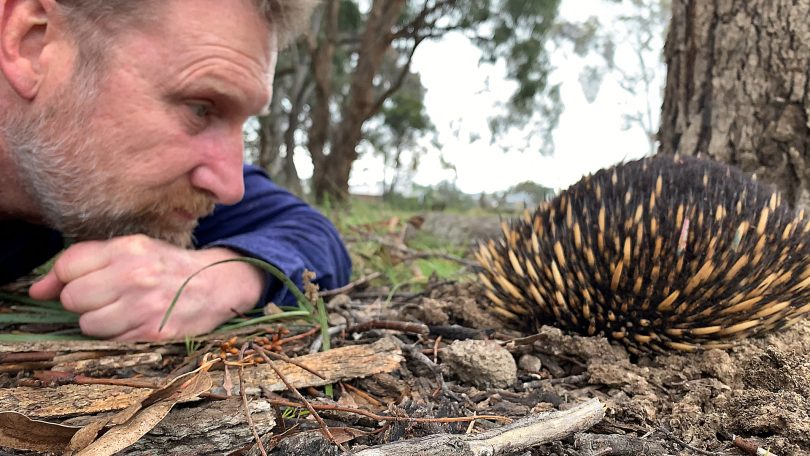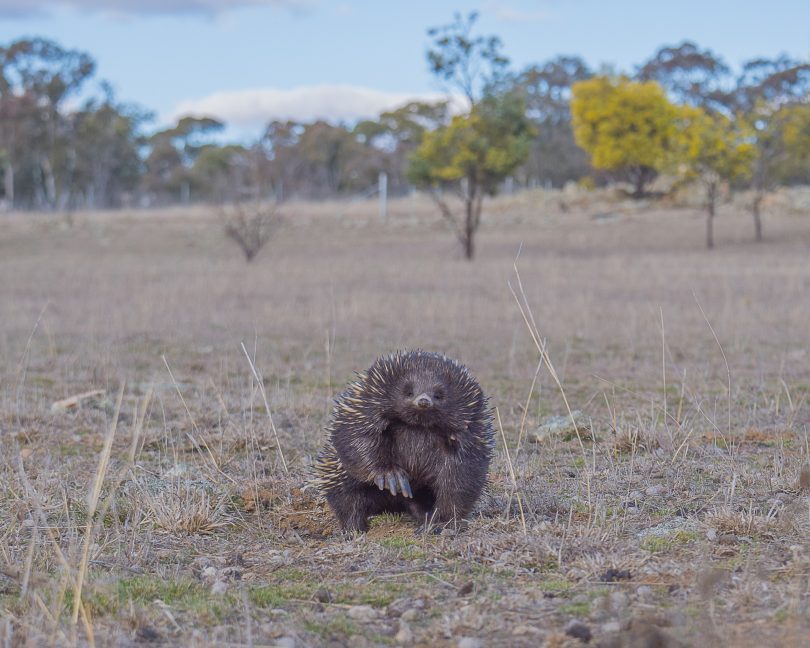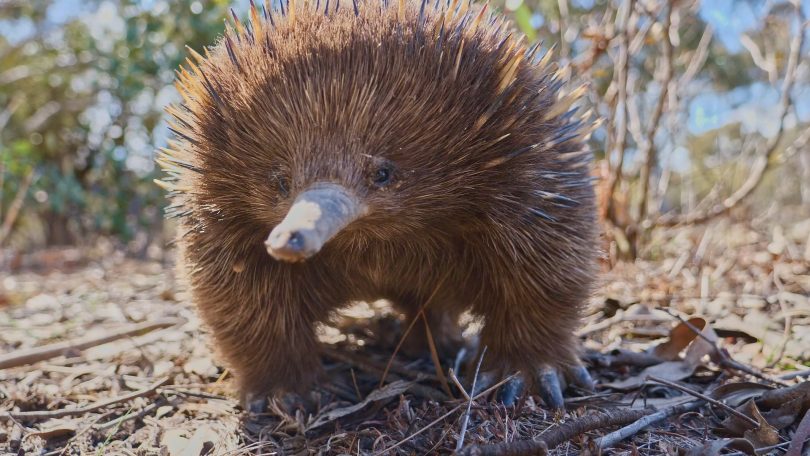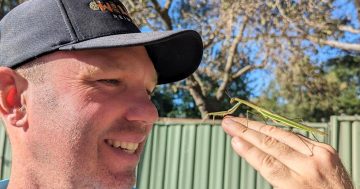
Mulligans Flat volunteer, photographer and echidna expert Andrew Easey with a friend. Photo: Supplied.
So why is November the echidna’s favourite month of the year? The answer to this, and other pointed questions, will be answered here, today, in what we like to call – Everything You Always Wanted to Know About Echidnas (But Were Afraid to Ask).
We’ve enlisted the help of echidna expert, Mulligans Flat sanctuary volunteer, photographer – and civil engineer by day – Andrew Easey.
His passion for the critters goes back a decade or so when, looking for a block of land to build on in Canberra, he decided the new suburbs near Mulligans Flat would be perfect. Today he lives pretty much across the road from the sanctuary.
But it was in 2019 when the BBC came to visit to film its Seven Worlds One Planet series that Andrew and the echidnas came into their own. He volunteered with the film crew, teaching them about the echidna and their idiosyncrasies.
“They are about as unique an animal as you can get,” Andrew says. “When the BBC was here, I spent a lot of time with the rangers keeping an eye on the echidnas. It got to the stage where I could lie on the ground and they’d approach me. You just have to sit quietly, with no sudden movements and they’ll come up to you.

This echidna puts paid to the monotreme’s reputation as being a bit spiky – it looks more like he’s giving the photographer a friendly wave. Photo: Andrew Easey.
Andrew said after a while, he started to recognise individual echidnas, including one the BBC crew nicknamed Fast Eddie.
“It was around August when the males start sniffing around the females. One morning we’d find Fast Eddie at one end of the sanctuary; the next day, he’d be at the other end. It was like he wanted to service as many females as he could. It was hilarious.”
Then there was another little fellow they called Wobbly because he, well, wobbled.
“Wobbly was a tiny little bloke; he could fit in your hand. He hadn’t quite figured out how to walk yet, so he sort of waddled like a turtle, took a couple of steps and then fell over. He was a real character.”
Now, in answer to those questions:
- Echidnas eat about 40,000 ants or termites a day but have no teeth.
- Can burrow for the Olympics. They tend to head straight down and disappear – even under fences.
- They are quite good swimmers.
- Can wave at humans (photographic evidence provided).
- Are the intellectual equivalent of a dog.
- Use their snouts to dig.
- They are seriously cute, and baby echidnas are called puggles.
- Have a 20 cm-long sticky tongue which helps to navigate ants’ nests.
- They are not early risers – you probably won’t see them surface before 10 am.
- The difference between male and female echidnas? A non-venomous spur on the male’s rear ankle. Seriously.

I’m ready for my close-up whenever you are, Mr DeMille. Photo: Andrew Easey.
So why is November so special? In the words of one of the BBC producers who took part in the 2019 filming – “it’s all about nuptial canoodling”.
From August onwards, male echidnas will form trains, following a particular female around with some boofy pushing and shoving if the mood takes them. Eventually, just one male is the lucky fellow, and after all that effort, the mating ritual lasts barely an hour.
Mulligans Flat has been inundated with volunteers keen to help with the annual Echidna Sweep this weekend and next, where the animal populations are counted, so no more help is needed. But visitors are always welcome to the sanctuary. Check out the website to find out what’s on.
See more of Andrew’s wildlife images on his website AndrewEasey.com.
Original Article published by Sally Hopman on Riotact.







